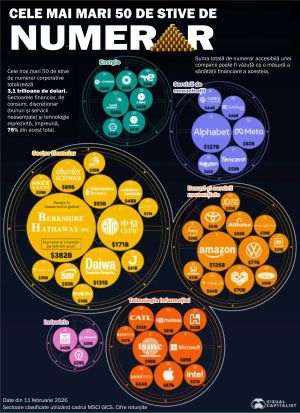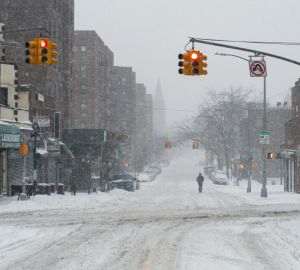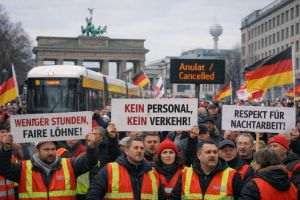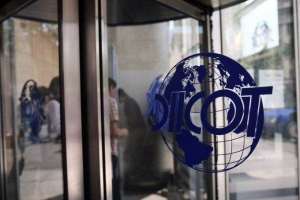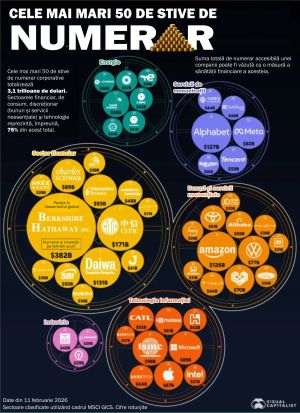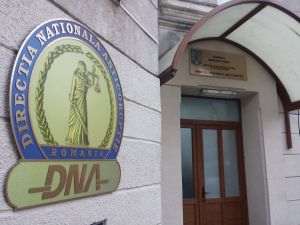The European Commission reacted on Tuesday, after the deputies of the Commission for Industries and Services have passed a series of amendments to the Natural Gas Law, according to which the gas producers will be required to fully trade their output on the OPCOM, with the Romanian Commodities Exchange being left out in the cold.
Currently, they have licenses for the trading of natural gas on two entities: the Romanian Commodities Exchange, private company, and the OPCOM, a branch of Transelectrica, in which the state owns 58.68%.
The amendments made in the Commission for Industries would leave the BRM without a license.
On Tuesday, the European Commission wrote to Iulian Iancu, the president of the Commission for Industries, that the proposal for the production of natural gas to be traded completely on the OPCOM is problematic.
The commission thinks that moving trading to the OPCOM is not recommended, as the BRM is currently a more liquid market, and granting exclusive rights to the OPCOM raises competition issues. Also, the Commission considers that the trading of 100% of the natural gas output on an exchange can be excessive.
A warning letter concerning the "severe consequences" of the amendments to the Law of natural gas was recently received by the president of the Chamber of Deputies Liviu Dragnea, from the PEGAS European natural gas platform. That letter also arrived, among other places, at the Ministry of Energy, the ANRE and the European Commission.
It is debatable whether the amendments are compatible with the competition laws of the European Union, since they limit the ability of offering trading services, amid the obligation of using only one platform, according to PEGAS, which also says that there is a risk that the platform used by the operator would not reflect the requirements of the market.
Furthermore, the measures proposed can raise an obstacle in the implementation of the EU package of energy, which would lead to an isolation of the Romanian gas market, says PEGAS, the trading platform of the German EEX Group, operated by Powernext, in France. PEGAS had 238 members and offers access to the trading of natural gas on contracts from Austria, Belgium, Holland, France, Germany, Italy, Denmark, Czech Republic and Great Britain.
• Virgil Popescu: "The PNL and the USR have opposed the amendments"
PNL deputy Virgil Popescu, member on the Commission for Industries, said that the PNL and the USR have voted against the amendments made to the Law of Natural Gas and that liberals will ask, in the plenum for the proposals to be sent back to the Commission.
He told us: "There are already two functional licenses issued by the ANRE, for the BRM and the OPCOM. We can't remove a license by law. The PSD has invoked a European regulation, but that regulation, quite the contrary, says that the transport operator, meaning Transgaz, selects the trading platform, not the lawmaker. Transgaz needs to select the platform which will issue the reference price".
Mr. Popescu also said that he does not support the amendment of 100% of the natural gas production being traded on the exchange, including bilateral contracts: "The introduction of bilateral contracts on the exchange creates problems, for new exploitations. Investors can get scared under these circumstances. I don't think that for new exploitations, the bilateral contracts need to be traded on the exchange".
The Industries and Services Commission has announced yesterday that it has completed, on May 16th, the report concerning the law for the approval of the Government Emergency Ordinance 64/2016 (issued by the Cioloş government) meant to modify and review the Law of Electricity and Natural Gas no. 123/2012.
According to the Commission, the main changes made include "the requirement to sell on the bulk trading platform of the entire volume of natural gas produced, imported and exported, transparently and non-discriminatorily; on the Western European model, a single operator on the bulk market for natural gas and electricity, OPCOM, to thus increase the liquidity of the bulk competitive market by centralizing the trading operations; the trading of the natural gas through bilateral contracts over the long term, indiscriminate access to the Natural Gas Transport Network including for the new BRUA pipeline; minimal criteria for the accreditation of operators on the retail market without limiting their number".
According to the Commission, the goal of all the changes is to create the legislative framework for the transparent, indiscriminate and in a competitive manner of the natural gas.
Deputies clarify that in the version issued by the Cioloş government, the main amendment was the total liberalization of the price of natural gas, even though Romania had negotiated a liberalization schedule by 2021.
"Unfortunately the Cioloş government did not have in mind, before a full liberalization of the price of natural gas, to create the framework for transparent, non-discriminatory and competitive trading and thus remove the possibility of some operators raising prices artificially rather than based on supply and demand", said Iulian Iancu, the president of the Industries and Services Commission.
The liberalization of the price of natural gas came into effect on April 1st, 2017 even though the same Cioloş government has created the framework for supporting the vulnerable consumer starting with April 1st, 2018 (through the Law no. 196/2016 of December 31st 2016), the press release of the Industries Commission further states.
"In other words we are first raising prices and only one year later do we take care of the vulnerable Romanian consumer", Iancu warned.
Deputies further added: "The negative impact on the end consumer has been felt starting with April 1st 2017: the price of natural gas bid by producers and traders have increased almost 27%, from 60 lei/MWh to 72-80 lei/MWh. Therefore, there is a risk that in the beginning of the winter of 2017-2018 the price of natural gas would rise way above 80 lei/MWh, seriously affecting end consumers, including the provision of warm water and heating to the population.
In the argumentation for the new version of the Government Emergency Ordinance no. 64/2016, it is stated that the ordinance is being passed to avoid the violation of art. 35 and art. 36 of the Treaty concerning the Functioning of the European Union and of art. 40, letter c) of the Directive 2009/73/CE.
Those articles mention «the elimination of restrictions on the natural gas trade between the member states, including the development of cross-border transport facilities» and that «the quantitative restrictions on exports are prohibited». Thus, the European provisions in question do not contain any mentions about the liberalization of prices, which was also confirmed by the representatives of the European Commission of D.G. Energy.
All the concerned factors participated in the debates, respectively the economic agents with associative structures, public authorities with roles in the area, including with representatives in Bucharest and Brussels of DG Energy from the European Commission".
All these economic measures proposed by the Commission for Industries and services for the amendment of Government Emergency Ordinance 64/2016 are essential for the creation in Romania of a regional natural gas hub, according to the Commission.
• The BRM disapproves the amendments to the Law of natural gas and announces that it will take action
The Romanian Commodities Exchange (BRM) expresses its consternation concerning the decision of the Industries and Services Commission of the Chamber of Deputies which, in its session of May 16th, 2017, upon the proposal of deputy Iulian Iancu (the current chairman of the Commission), has passed an amendment to the Draft law concerning the approval of the Emergency Ordinance no. 64/2016 for the amendment and the completion of the Law of electricity and natural gas no, 123/2012, amendment by which it essentially nationalizes the services provided by the BRM, showing profound contempt for the European and national legislation based on which the company has been licensed, according to a press release by the BRM.
The BRM claims that an amendment which in fact institutes the nationalization of gas trading has been passed by the Industries and Services Commission of the Chamber of Deputies, upon pressure from its chairman, without the topic being on the agenda of the May 16th session and against the negative opinions received from the government, the ANRE, the Competition Council and the European institutions.
"The BRM expresses its deep disapproval for the manner in which the president of the Industries and Services Commission of the Chamber of Deputies treats Romanian private equity which conducts a legal activity, which has invested so far several million lei, an activity which is appreciated by all the market participants", the representatives of the BRM further said, adding: "They have traded in conditions of transparency, indiscrimination and integrity, a volume of 40 TWh in the last two years, and in April exceeded 30% of the national consumption.
The BRM makes a public call to the president of the Chamber of Deputies Mr. Liviu Dragnea to get involved in the resolution of this situation and rejecting this attempt of nationalization which would thrown Romania back in the communist period. The BRM also informs the market participants that it will take every legal measure required in order to defend its rights that accrue to it according to the national and European legislation in effect and will continue to act towards carrying out our country's goal of becoming a regional natural gas hub".
•
• The industries commission has presented the amendments and the completions made to the Law of natural gas
The industries commission yesterday sent the modifications and completions made to Emergency Government Ordinance no. 64/2016 following the debates:
"1. the creation of the legislative framework for the transparent, non-discriminatory and competitive trading of natural gas:
the requirement to trade on the bulk trading platform the entire volume of natural gas produced, imported and exported, in a transparent and non-discriminatory manner;
the operator of the bulk natural gas market will be represented by OPCOM S.A., as will the electricity market, in line with the energy strategy of the European Union to achieve a single energy market with the resolution "Towards a European Energy Union" passed by the European Parliament in December 2015.
The goal is to increase the liquidity of the bulk competitive market by centralizing the trading activities. These measures are identical to the ones implemented in Austria, starting with January 2013, when through the Law of natural gas it was decided to create a single national private virtual trading point (PVT) through the Central European Gas Hub (CEGH). Identical situations concerning the single exchange operator can be seen in Germany, Great Britain, Belgium, Denmark, France, Italy, Holland, Poland, Hungary, etc.
- OPCOM S.A. already has an infrastructure developed at European and international standards to support the trading of natural gas, and its activity complies in full the regulations issued and approved by the ANRE and the operational documents approved by the ANRE.
- the legal conditions have been created for the trading of natural gas through long term bilateral contracts, whose sales terms will be set by the seller, thus allowing the access of any buyer from Romania or any other EU member state.
- the conditions have been created for indiscriminate access to the Natural Gas Transport Network, including to the new BRUA pipeline, for all the economic entities in Romania and in any other EU member states;
- minimal requirements have been set for the certification of operators for the retail markets without limiting their number, criteria which pertain mostly to transparency and information security;
- the increase of the market's transparency, by implementing the requirement for all the prices and quantities set through the transactions made on all the centralized natural gas markets, as well as all the prices and quantities from the contracts on the regulated market, the export contracts, the import contracts, intragroup contracts, transfer prices and the pertaining quantities to be public, in aggregated forms and not to affect the commercial interests of the operators;
2. The implementation of the input-output system with the use of the virtual trading point and the achievement of the balancing for every gas day private virtual trading point - in compliance with the recommendations of the EU - as Romania is the last country in the EU that has not yet implemented this system which brings transparency and fluidity;
The fixing of some existing errors, such as:
- the removal of the concession of the distribution of the distribution price, that being a competitive element negotiated with the contracting authorities and not a deductible tax;
- the limiting of the justified costs for the transport and distribution operators, strictly tied to the basic activity and the profit can not exceed 10%;
- the simplification of the procedures and the shortening of the time it takes to get the approvals from the Ministry of Energy, of the right to grant distribution and transport concessions in the Territorial Administrative Units (UAT);
- in order to the joining to the natural gas network of the localities and isolated homes the requirement for distribution grantees to extend the networks according to the needs from the development plants of the territorial administration units.




